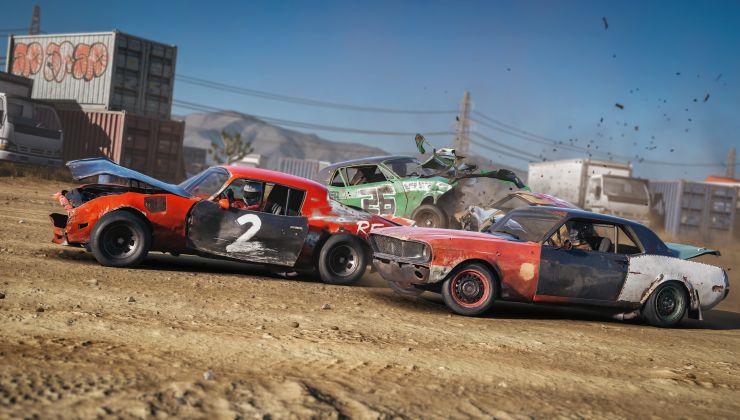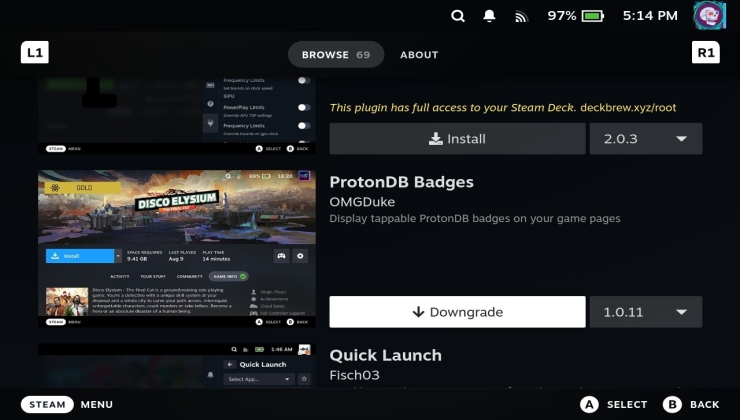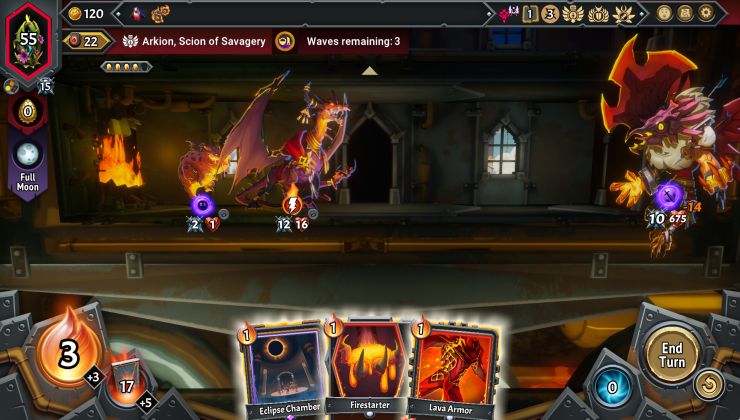Well this is a shame but in many ways to be expected. Take-Two Interactive Software, the parent company of Rockstar Games, has filed a lawsuit against the developers of the reverse-engineered GTA III and Vice City code.
This is a bit of an ongoing saga, as Take-Two first got the GitHub repositories taken down, which were later restored when the developer of a fork submitted a counter-notice which wasn't argued so they all went back up. The repositories are still live on GitHub right now. The notice mentions this with Take-Two saying the counter notices were "were made in bad faith, and knowingly and deliberately misrepresented to GitHub the contents".
Plenty more is argued as well of course. In the notice it complains how the code now runs on platforms it was never released for where the "Defendants have sought to exploit a potential market that belongs exclusively to Take-Two", it argues against new cheats enabled in the source code which "are strictly prohibited under Take-Two’s terms of service". It goes further, complaining about modding which Take-Two say "encouraging users to further infringe the original Games and to violate their agreements with Take-Two that prohibit such activities".
As a result of the code being public, Take-Two are claiming it the "Defendants have caused and continue to cause irreparable harm".
Take-Two are looking to get damages paid which as of yet "are not currently ascertainable", so they want it to be worked out. On top of that they want the "maximum statutory damages of $150,000 for each work infringed" and they also want their "attorneys’ fees and full costs" paid as well.
The point about cheats is a funny one. Single-player games from the early 2000s have cheats added in? Extra modding too? Oh no, how completely terrible for people to further enjoy them.
Why was this lawsuit coming to be expected? Well, reverse-engineered code tends to be a grey area with it often being against the law, and code from leaks is a big no for all sorts of obvious legal reasons. That said, the source code did require people to actually buy the games for the data, so Take-Two would have still be getting revenue thanks to it.
Sadly though, like most major publishers, they shy away from any sort of open source. In this case, Take-Two and Rockstar are reportedly doing a big GTA Remastered Trilogy so moving to fully protect their code was obvious.
Defendants have sought to exploit a potential market that belongs exclusively to Take-Two.Market which belongs exclusively to one party is called a monopoly, so I guess this means that Take-Two needs to pay antitrust fines or be broken up. :P
I might be misunderstanding but it doesn't look like a clean room implementation like OpenRA, CorsixTH, OpenMW and GemRB. Instead they've reversed engineered the binaries to get the source code.
Ya, that's not how that works. Literally all open source implementations reverse engineer the original binaries. (even Zdoom, as the support for games like strife and the like had to be reverse engineered). That's how it's done. ScummVM for example recommends that new contributors should use a combination of debuggers and IDAPro (A tool for reverse engineering). And even then, reverse engineering doesn't give you the source code, rather it gives you c-like pseudocode for a given function, pseudocode which lacks names, types, structs, and has plenty of mistakes. It's a long and arduous process to reverse engineer anything.
T2 is turning into ActiBlizzard, AAA game publishers with greedy CEOs
https://www.youtube.com/watch?v=jREw369WoAw
All for the sake of GTA Remastered...
Turning into ahahahhahah their CEO said we need to stop giving content away for free because there's more wood to chop. Straus said that on a investor call about 18 months ago
Last edited by mrdeathjr on 3 Sep 2021 at 1:02 pm UTC
Hahahahahahahahahahaha hahahahahaha hah hahahaha aaaaaah
....
Aaahahhahahahahahahahahahaha ahahhahaa hahahaha (snort) hahaha (snort) hahahahahahahahaha irreparable harm hahahahahahahahahahaha hahahah hahahahahahahahaha
Well, either Take-Two lawyers are extremely unprofessional or it is total fraud/freevolious.
"irreparable harm" means it can't be fixed by money, which is totally not
the case here even in worst case scenario. Unless they will bribe judge I don't see
how this claim won't get dismissed.
No this is common language to use in copyright cases in the US and have a special meaning:
Courts have found irreparable harm in cases where the plaintiff has proven that:
Plaintiff has suffered a loss that is difficult to compensate or measure.
Plaintiff has a limited time period to exploit its work or is experiencing other market disadvantages.
Plaintiff has lost the ability to control its copyrights.
Defendant's copyright infringement is harming plaintiff's reputation or brand.
Defendant's infringement interferes with plaintiff's exclusive license agreements.
Defendants have sought to exploit a potential market that belongs exclusively to Take-Two.Market which belongs exclusively to one party is called a monopoly, so I guess this means that Take-Two needs to pay antitrust fines or be broken up. :P
They have a monopoly on their copyrighted assets which is what they are talking about here. What they mean is that T2 have exclusive rights to port their own games to whatever system they want to and that this reverse-engineered port infringes on that right, aka T2 alone have the right to port GTA3 to say the Switch.
28. Papenhoff has admitted that the source code developed via the re3 and reVC
projects is not original, but rather is (and was intended to be) a copy of the original. In fact,
Defendants have bragged that their derivative source code was created by working backwards
from Take-Two’s final “machine” code to re-create the human-readable code in which GTA was
programmed:
“GTA 3 and Vice City were originally written in [programming
language] C++ . . . The compiled executables that are shipped are in
machine code. So the general task is to go from machine code back to
C++. . . . To go back to C++ is by no means a simple 1:1 mapping, but
over the last 10 or so years decompilers have appeared that help with this
process. . . . So what we typically do is work with the output of the
decompiler and massage it back into readable C++.” Id.
If this is true and it appears to be so, then this is in fact copyright infringement and not something that any of us really can defend.
I might be misunderstanding but it doesn't look like a clean room implementation like OpenRA, CorsixTH, OpenMW and GemRB. Instead they've reversed engineered the binaries to get the source code.
As long as it's not linux/cross-platform skeleton/compatibility layer, all of the code on the repo that's not behind a preprocessor condition(like FIX_BUGS) are completely reversed code from original binaries.
Clean room re-implementations are reverse engineered. Of course, a clean room re-implementation is done as follows:
Someone analyzes the original program to figure out how it works/interfaces with other software. They document this as they go along without any references to actual code.
Someone else takes the documentation and writes compatible code without ever directly seeing how the original code works.
The information presented here doesn't actually reveal whether this reverse engineering was done in a "clean room" manner or not.
I might be misunderstanding but it doesn't look like a clean room implementation like OpenRA, CorsixTH, OpenMW and GemRB. Instead they've reversed engineered the binaries to get the source code.
Ya, that's not how that works. Literally all open source implementations reverse engineer the original binaries. (even Zdoom, as the support for games like strife and the like had to be reverse engineered). That's how it's done. ScummVM for example recommends that new contributors should use a combination of debuggers and IDAPro (A tool for reverse engineering). And even then, reverse engineering doesn't give you the source code, rather it gives you c-like pseudocode for a given function, pseudocode which lacks names, types, structs, and has plenty of mistakes. It's a long and arduous process to reverse engineer anything.
Huge difference here is that ScummVM only reverses either public domain games or with
I might be misunderstanding but it doesn't look like a clean room implementation like OpenRA, CorsixTH, OpenMW and GemRB. Instead they've reversed engineered the binaries to get the source code.
Ya, that's not how that works. Literally all open source implementations reverse engineer the original binaries. (even Zdoom, as the support for games like strife and the like had to be reverse engineered). That's how it's done. ScummVM for example recommends that new contributors should use a combination of debuggers and IDAPro (A tool for reverse engineering). And even then, reverse engineering doesn't give you the source code, rather it gives you c-like pseudocode for a given function, pseudocode which lacks names, types, structs, and has plenty of mistakes. It's a long and arduous process to reverse engineer anything.
Big difference there is that both Zdoom and ScummVM does this with the blessing of the copyright holders. Strife was reversed when the original author discovered that all the source code had vanished due to the servers it being held on had been sold.
I might be misunderstanding but it doesn't look like a clean room implementation like OpenRA, CorsixTH, OpenMW and GemRB. Instead they've reversed engineered the binaries to get the source code.
As long as it's not linux/cross-platform skeleton/compatibility layer, all of the code on the repo that's not behind a preprocessor condition(like FIX_BUGS) are completely reversed code from original binaries.
Clean room re-implementations are reverse engineered. Of course, a clean room re-implementation is done as follows:
Someone analyzes the original program to figure out how it works/interfaces with other software. They document this as they go along without any references to actual code.
Someone else takes the documentation and writes compatible code without ever directly seeing how the original code works.
The information presented here doesn't actually reveal whether this reverse engineering was done in a "clean room" manner or not.
Another way it so simply observe how the original application/game works and try to recreate it from there. In this particular case it does look like they just went with a decompiler (see my post two posts up).
Claim 28 is quite damaging to the reverse-engineering team:
28. Papenhoff has admitted that the source code developed via the re3 and reVC
projects is not original, but rather is (and was intended to be) a copy of the original. In fact,
Defendants have bragged that their derivative source code was created by working backwards
from Take-Two’s final “machine” code to re-create the human-readable code in which GTA was
programmed:
“GTA 3 and Vice City were originally written in [programming
language] C++ . . . The compiled executables that are shipped are in
machine code. So the general task is to go from machine code back to
C++. . . . To go back to C++ is by no means a simple 1:1 mapping, but
over the last 10 or so years decompilers have appeared that help with this
process. . . . So what we typically do is work with the output of the
decompiler and massage it back into readable C++.” Id.
If this is true and it appears to be so, then this is in fact copyright infringement and not something that any of us really can defend.
I'm not sure if that would actually be copyright infringement, but it certainly doesn't sound like clean room to me either. I think they'll have a hard time defending this one despite all the nonsense claims of T2 and I don't think any legal defenders of open source will want to burn themselves on this one.
Claim 28 is quite damaging to the reverse-engineering team:They recreated the C++ code from the machine code disassembled, then patched it to compile on different platforms... From my understanding that's still one valid way of reverse engineering. The other method of course is to study the data files and create code around interpreting it. Copyright infringement would only be if they literally took the original source code and copied it. That's the part that is copyrighted. Using a disassembler is not illegal in any sense of the word.
28. Papenhoff has admitted that the source code developed via the re3 and reVC
projects is not original, but rather is (and was intended to be) a copy of the original. In fact,
Defendants have bragged that their derivative source code was created by working backwards
from Take-Two’s final “machine” code to re-create the human-readable code in which GTA was
programmed:
“GTA 3 and Vice City were originally written in [programming
language] C++ . . . The compiled executables that are shipped are in
machine code. So the general task is to go from machine code back to
C++. . . . To go back to C++ is by no means a simple 1:1 mapping, but
over the last 10 or so years decompilers have appeared that help with this
process. . . . So what we typically do is work with the output of the
decompiler and massage it back into readable C++.” Id.
If this is true and it appears to be so, then this is in fact copyright infringement and not something that any of us really can defend.
I think what this comes down to is this; (and mind you I skipped most of the thread so it was probably already stated).Claim 28 is quite damaging to the reverse-engineering team:
28. Papenhoff has admitted that the source code developed via the re3 and reVC
projects is not original, but rather is (and was intended to be) a copy of the original. In fact,
Defendants have bragged that their derivative source code was created by working backwards
from Take-Two’s final “machine” code to re-create the human-readable code in which GTA was
programmed:
“GTA 3 and Vice City were originally written in [programming
language] C++ . . . The compiled executables that are shipped are in
machine code. So the general task is to go from machine code back to
C++. . . . To go back to C++ is by no means a simple 1:1 mapping, but
over the last 10 or so years decompilers have appeared that help with this
process. . . . So what we typically do is work with the output of the
decompiler and massage it back into readable C++.” Id.
If this is true and it appears to be so, then this is in fact copyright infringement and not something that any of us really can defend.
I'm not sure if that would actually be copyright infringement, but it certainly doesn't sound like clean room to me either. I think they'll have a hard time defending this one despite all the nonsense claims of T2 and I don't think any legal defenders of open source will want to burn themselves on this one.
1) T2 saw how popular this was.
2) T2 then thought 'but we can't really raise the price on this really old game, and most already own it...'
3) Rockstar, not known for doing remasters of old games... T2 was like 'well why not now? We can resell this!'
4) T2 realized that with an open source engine, and mods, that people could just make their own remastered edition!
5) T2 called lawyers!
Sentence about lost of market, because game will be available on new platform is stupid. People must still buy an license to play on these new platforms, so Reverse Engineering team made a big gift for Take Two. It must not port game code to the new platform, so save many money. And it will receive profits, because users of these new platforms will buy an game licenses.
Defendants have sought to exploit a potential market that belongs exclusively to Take-Two
Yep, completely agree. Since you need the original game to use this re-engineered engine, T2 still own the market, still get all profits. Indeed, they do so without any support burden, or risk.
Nearly... oh so nearly picked up GTA-V in the last sale, but glad I didn't now. Last GTA I paid for was 3, funnily enough, back on the PS2, I think, or maybe PS3. I used to work in the same building as the R*N guys too. Of course, this isn't about them as devs, just their knee-jerk publishers.
As I understand new world, corporations split the "markets" between them and became upset someone got to their territory. The claims is so anti-market and anti-capitalistic as whole so I wonder what is going on.Anti-market perhaps, although markets have always had a lot less of the whole freedom fairy dust than many people are led to believe. Anti-capitalistic, no. We think of markets and capitalism as being near-identical, but they aren't. Capitalism as such has little to do with markets, let alone free ones--monopoly is the objective of every capitalist who gets far enough. The fundamental points that make capitalism a system distinct from other systems is private individuals invest money (capital) to get a profit, employing wage labour to cause the profit to happen. Usually, that involves selling something to someone in something you could call a market, but sometimes it involves outright stealing, sometimes it involves direct selling solely to government as in US defence procurement, sometimes it involves the company store in the company town, where the miners or whoever buy your stuff at your price or they starve. All still capitalism, just not very markety. You can definitely have both markets without capitalism, and capitalism without markets.
(You can also have capitalism without the limited liability corporation)
1) The defendants are actually guilty of copyright infringement, but
2) Far from causing "irreparable harm", the reimplementation has actually added to Take-Two's profits and, at least until they started attacking it, enhanced their brand and reputation?
On a side note, does anyone else find it kind of amusing that someone's doing a stickler-for-the-details lawsuit over a game that glorifies and indeed is entirely about violent lawbreaking?









 How to set, change and reset your SteamOS / Steam Deck desktop sudo password
How to set, change and reset your SteamOS / Steam Deck desktop sudo password How to set up Decky Loader on Steam Deck / SteamOS for easy plugins
How to set up Decky Loader on Steam Deck / SteamOS for easy plugins
See more from me